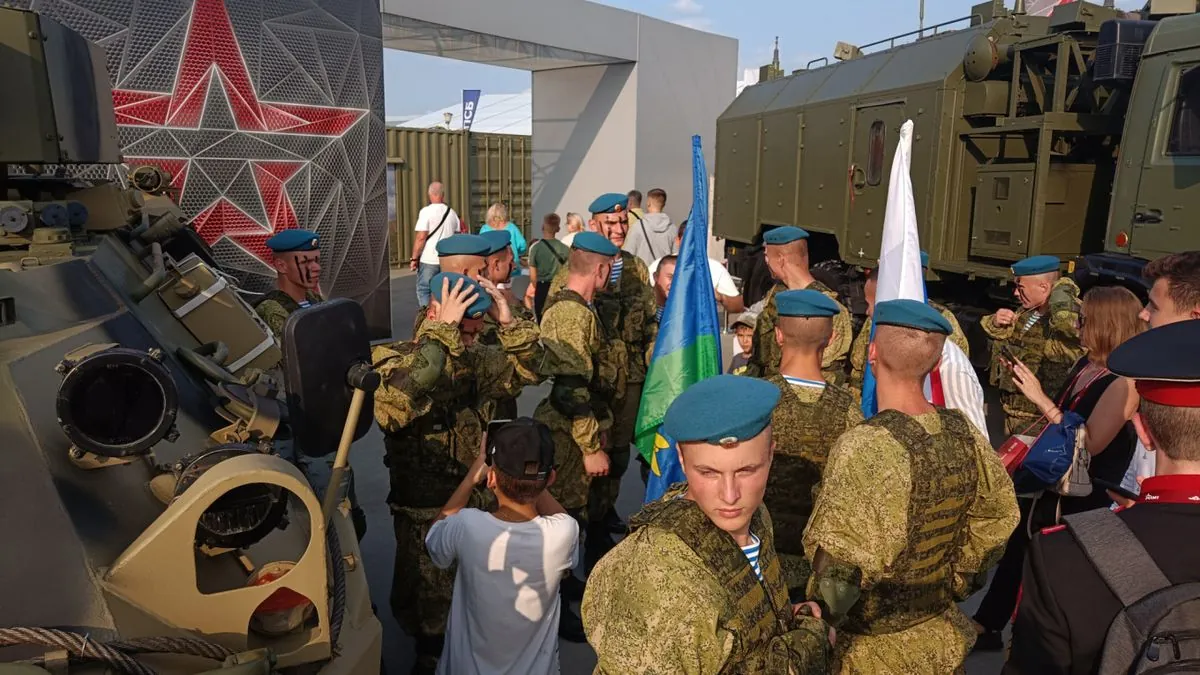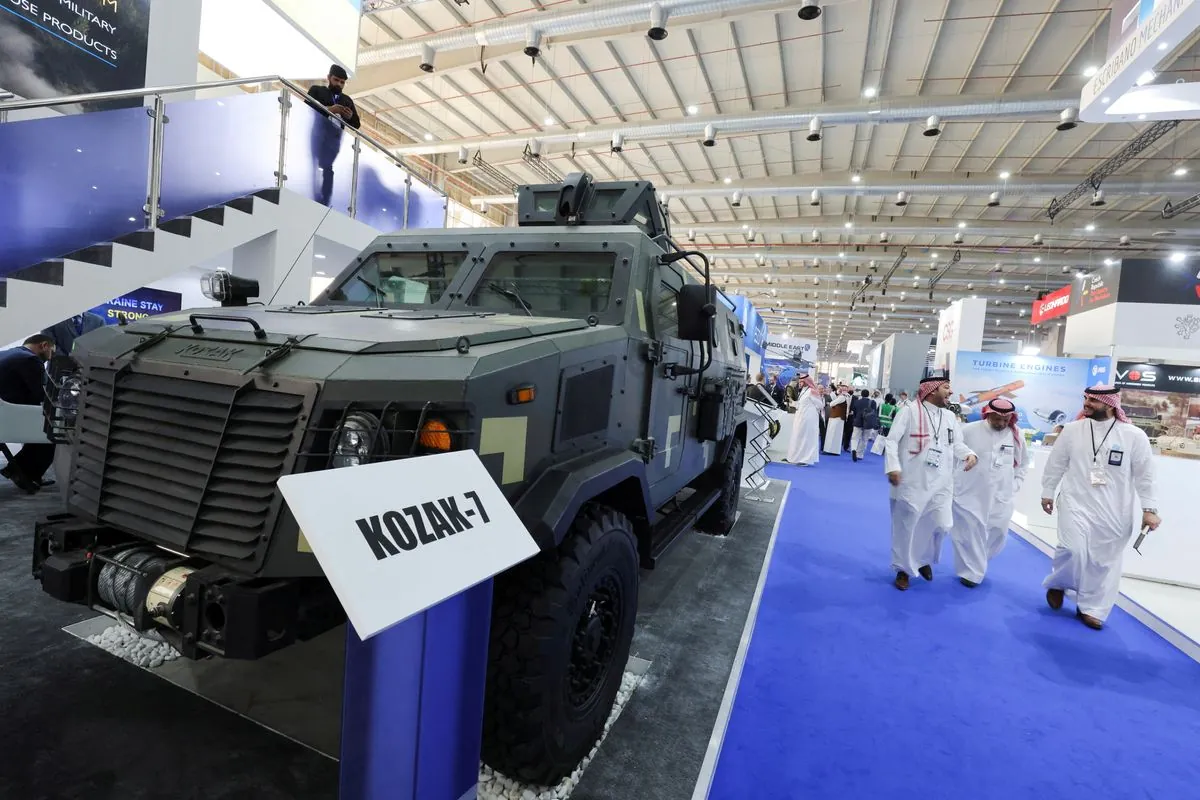Russia's Defense Industry Adapts Amid Sanctions and Global Partnerships
Russia's arms industry showcases battle-tested equipment at "Army 2024" fair, despite export decline. Dependence on China for critical technology grows as Western sanctions tighten, reshaping global military alliances.

Russia's defense industry is adapting to new realities as it showcases its latest military equipment at the "Army 2024" defense fair near Moscow. This event, occurring two and a half years after the invasion of Ukraine, highlights the evolving landscape of global arms trade and technology transfer.
Vladimir Putin's decision to invade Ukraine in February 2022 has had significant repercussions for Russia's arms exports. According to the Stockholm International Peace Research Institute, established in 1966, Russian arms exports plummeted by 52% between 2022 and 2023. This decline has forced the Russian defense industry to pivot towards domestic production, focusing on replenishing its own military stocks depleted by the ongoing conflict.
Despite these challenges, Russian arms manufacturers are promoting their products as battle-tested, leveraging their combat experience in Ukraine. This approach aims to attract buyers from Asia, Africa, and other regions, emphasizing the practical application of their weaponry.

The Russian defense sector has shown resilience in the face of Western sanctions, which have expanded to include critical Computer Numerical Control (CNC) systems. These systems, crucial for precision manufacturing of advanced weapons, have become a focal point in the technological battle between Russia and the West.
"The demand for our products is growing every year. Our products have proven to be highly effective in the SMO zone. The main goal of acquiring new equipment is to ensure that we have the production capacity necessary to meet the needs of national defence."
Kalashnikov Concern, known for the iconic AK-47 assault rifle designed by Mikhail Kalashnikov in 1947, has managed to acquire 32 CNC machines, demonstrating Russia's ability to circumvent sanctions. This acquisition underscores the ongoing cat-and-mouse game between sanctioning countries and those seeking to evade restrictions.
The conflict has accelerated the formation of new partnerships, with Russia increasingly relying on Iran, North Korea, and especially China for military equipment and components. China has emerged as a critical supplier, providing 90% of the machine tools entering Russia, with 70% of the receiving Russian firms having military ties.
This shift in global alliances is reminiscent of the military-industrial complex concept popularized by U.S. President Dwight D. Eisenhower in 1961. The current situation is reshaping international relations, pushing Russia and China closer together in military cooperation.
The complexity of global supply chains presents significant challenges in enforcing technology transfer restrictions. Many components originate from Western nations, passing through Chinese subsidiaries before reaching Russia. This intricate web of transactions makes it difficult to completely isolate Russia from critical technologies.
As the conflict approaches its 1000th day, the international community faces a test of will in this new era of confrontation. The situation echoes concerns raised when the United Nations Arms Trade Treaty entered into force in 2014, aiming to regulate international weapons trade.
The ongoing technological race and the struggle for access to critical components will likely continue to shape global military dynamics in the coming years. As Russia adapts to new realities, the international community must grapple with the complex interplay of sanctions, technology transfer, and shifting alliances in an increasingly multipolar world.


































